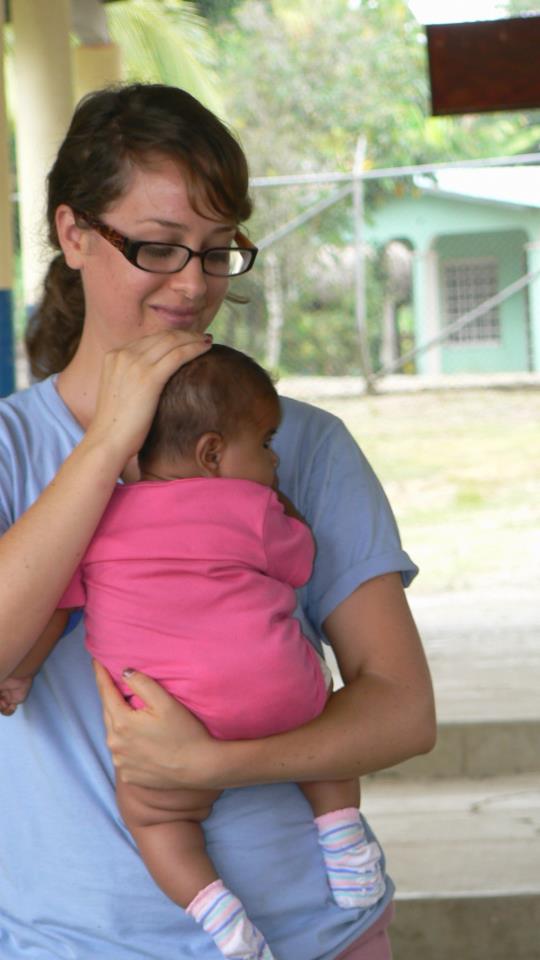Global Brigades: Panama’s rural areas lack doctors

“A baby came to us sick” said David. “He was covered in scabies and wasn’t crying. We knew it was a bad sign.” It was David’s call to send the newborn to Panama City for treatment, a 2-hour drive from the small Ipeti Guna community he was working in. Every other week David leaves Coronado for the Darien to organize groups of North American medical students. He is part of non-profit student led organization called Global Brigades. Global Brigades has had a presence in Panama for over 5 years. Medical clinics are one of many community outreach programs GB facilitates. “It is not an easy task to organize a clinic,” says David. The program must work with village leaders to shape each clinic to suit the community’s specific needs and wants. A typical clinic offers regular check ups and dental extractions. Furthermore their medical education program, CHARLA, helps teach healthy habits to limit disease and infection. Small acts like brushing teeth regularity and washing food all work to create healthier communities. “We can only offer the community what they are asking for. If we force something on them they don’t want, we will not be welcomed back.” The community’s cooperation is vital to the clinic’s success. The medical program has also to overcome legal limitations. Since one must be a Panamanian citizen to practice medicine in Panama, the North American doctors and medical students work under the license of a Panamanian doctor. For this reason, among others, invasive procedures cannot be preformed at the clinics.
Patients in critical condition or needing surgical procedures are entered into a referral program. The program helps these patients obtain the medical attention they need in Panama City.
It takes about 2 hours to reach the city from most of the villages GB does work in. When the patient is stable and the treatment is available the drive is short, simple. However, in cases like the critically ill newborn the drive is 2 hours too long.
On June 12th 2013 the President of the Legislative Assembly, Sergio Galvez, spoke to the unwillingness of Panamanian doctors to work in Panama’s rural areas. Isolation lack of facilities and staff lowers the desirability of the rural jobs. Volunteer medical groups like Global brigades work in areas like the Darien because they see a need. However their reach is limited.
“People in the provinces die because of the lack of medical attention there.” Said Mr. Galvez.
The Rural population in Panama was last reported at 25.2% in 2010 (World Bank, 2012). The majority of these rural communities are outside the coverage of basic health care, but the problem goes beyond economic isolation.
In the Darien province, a brand new state of the art hospital sits in the town of Santa Fe. The hospital is well equipped with an x-ray machine; an expensive piece of machinery that is rarely used, as the hospital lacks a radiologist.
There are approx. 5,764 residents living in the town of Santa Fe. The hospital intends to care for the town’s residents along with the many who travel to Santa Fe from more isolated areas of the Darien.
There are currently 3 Panamanian doctors who work tirelessly at the Santa Fe hospital. Due to an overload of patients, the government has set a limit of 30 patients to be seen by each doctor daily, so as not to overwhelm them. “Its kind of like baseball”, says David, “you don’t play your best pitcher every game in fear of him throwing out his arm mid season.” Since finding Panamanian doctors willing to work in the area is difficult, the government is focused on keeping the ones they have.
In an interview with Telemetro Sergio Galvez spoke to a solution. Galvez is currently defending a law proposed to allow the Ministry of Health to hire foreign doctors. The law is currently in congress.
Glavez stated that Health authorities would still give priority to Panamanian citizens seeking employment. The law does not intend to take away jobs from Panamanians rather it seeks to staff rural hospitals, like Santa Fe that are in need.
With a visible need for doctors, and a clear indication that foreign doctors have been filling a void, we may be on the verge of seeing even more changes in Panama’s immigration laws.
